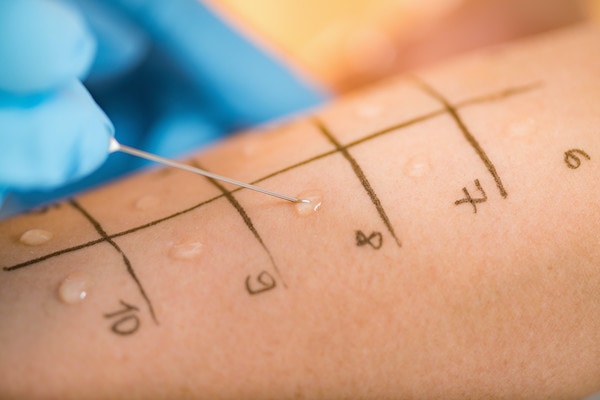EN 15790 Detection of Mustard Protein Allergens in Condiments
The European Standard EN 15790 is a critical tool for food and feed testing, especially within the sector of allergen management. This standard provides specific methodologies to detect mustard protein allergens in condiments, ensuring compliance with EU regulations on food safety.
Mustard is one of several high-risk allergens that can cause severe reactions if consumed by individuals who are allergic. The presence of these allergens in products intended for human consumption must be rigorously controlled to safeguard public health and avoid potential legal ramifications. EN 15790 addresses this requirement by offering a standardized approach to identifying mustard proteins, which play a significant role in triggering an allergic reaction.
The methodology outlined in the standard involves several stages of specimen preparation, extraction, purification, and detection using immunoassay techniques. The process is designed to ensure that even trace amounts of mustard protein allergens are accurately identified. This is crucial for manufacturers who need to guarantee their products meet safety standards.
One of the key aspects of EN 15790 is its focus on sensitivity and specificity. By employing advanced immunoassay technology, this standard ensures that any detected allergen can be distinguished from other proteins present in the sample, reducing false positives. This precision is essential for maintaining product integrity and consumer trust.
Testing condiments using EN 15790 requires a multi-step process:
- Sample Preparation: Condiment samples are initially prepared by homogenizing the product to ensure uniformity. This step is critical for obtaining representative samples that can be analyzed accurately.
- Allergen Extraction: The extracted allergens from the condiments must undergo further purification, which involves using appropriate buffers and solvents to isolate mustard proteins specifically.
- Detection: Once purified, the allergens are subjected to immunoassay testing. This method uses antibodies that have been calibrated to recognize mustard protein allergens uniquely.
The standard also includes acceptance criteria for results. Samples failing to meet these criteria indicate the presence of detectable levels of mustard protein allergens, which requires immediate corrective actions by manufacturers. This ensures that products are safe for consumption and comply with EU regulations on food safety.
Given the complexity and importance of this testing process, it is crucial to partner with a laboratory like Eurolab, which specializes in such analyses. Our expertise guarantees accurate results and compliance with EN 15790 standards. We use state-of-the-art technology and experienced personnel to ensure that our clients receive reliable data they can trust.
Our commitment to precision and reliability extends beyond mere compliance; it also includes proactive measures to help our clients stay ahead of regulatory changes and market demands. By leveraging EN 15790, we empower food manufacturers to maintain the highest standards of safety and quality in their products.
Eurolab Advantages
At Eurolab, our expertise in allergen testing is unparalleled. Our team comprises highly skilled professionals with extensive experience in food and feed testing, ensuring that we can provide accurate results consistently.
We offer comprehensive services tailored to meet the diverse needs of our clients across various sectors. Our advanced facilities support a wide range of testing requirements, including but not limited to allergen detection using EN 15790. This allows us to deliver high-quality results swiftly and efficiently.
Our commitment to excellence is reflected in the quality assurance measures we implement throughout our processes. From sample collection to final reporting, every step is meticulously documented and reviewed to ensure accuracy and reliability.
We pride ourselves on our ability to offer customized solutions that address specific client needs. Whether you require routine testing or one-off assessments, Eurolab stands ready to provide the support necessary for your compliance journey.
Our partnership with clients is built on transparency, trust, and shared goals. By leveraging our resources and expertise, we help ensure that your products meet all relevant standards, thus enhancing consumer confidence and protecting your brand reputation.
Quality and Reliability Assurance
At Eurolab, quality assurance is a cornerstone of our operations. We adhere strictly to international standards such as ISO/IEC 17025:2017, which governs the competence of testing and calibration laboratories.
This accreditation ensures that all our processes are robust and reliable, providing clients with confidence in our results. Our commitment extends beyond compliance; we continuously strive to improve our methods through ongoing training and investment in cutting-edge technology.
The rigorous nature of EN 15790 makes it particularly challenging yet essential for accurate allergen detection. Our laboratories are equipped with the latest equipment, including highly sensitive immunoassay systems, ensuring that even trace amounts of mustard protein allergens can be detected accurately.
We also employ a stringent quality control system that monitors every stage of our testing process. This includes regular calibration checks and internal audits to maintain consistency and precision in our results.
Our dedication to excellence is further underscored by our robust data management practices. All test results are meticulously recorded and stored, providing clients with comprehensive reports and historical data for reference.
Competitive Advantage and Market Impact
By implementing EN 15790 in your product development and quality control processes, you can gain a significant competitive advantage. Ensuring compliance with this standard not only protects your brand from potential legal issues but also enhances consumer trust.
The growing awareness of food allergies among the general public has led to increased demand for allergen-free products. By adhering to EN 15790, you demonstrate your commitment to safety and quality, which can significantly boost market appeal.
Moreover, maintaining compliance with this standard helps you stay ahead of regulatory changes and emerging trends in food safety. This proactive approach ensures that your product remains competitive and relevant in a constantly evolving market.
Our services go beyond mere testing; we offer strategic advice on allergen management to help you integrate these practices effectively into your business operations. By doing so, you not only meet regulatory requirements but also enhance the overall safety and quality of your products.





